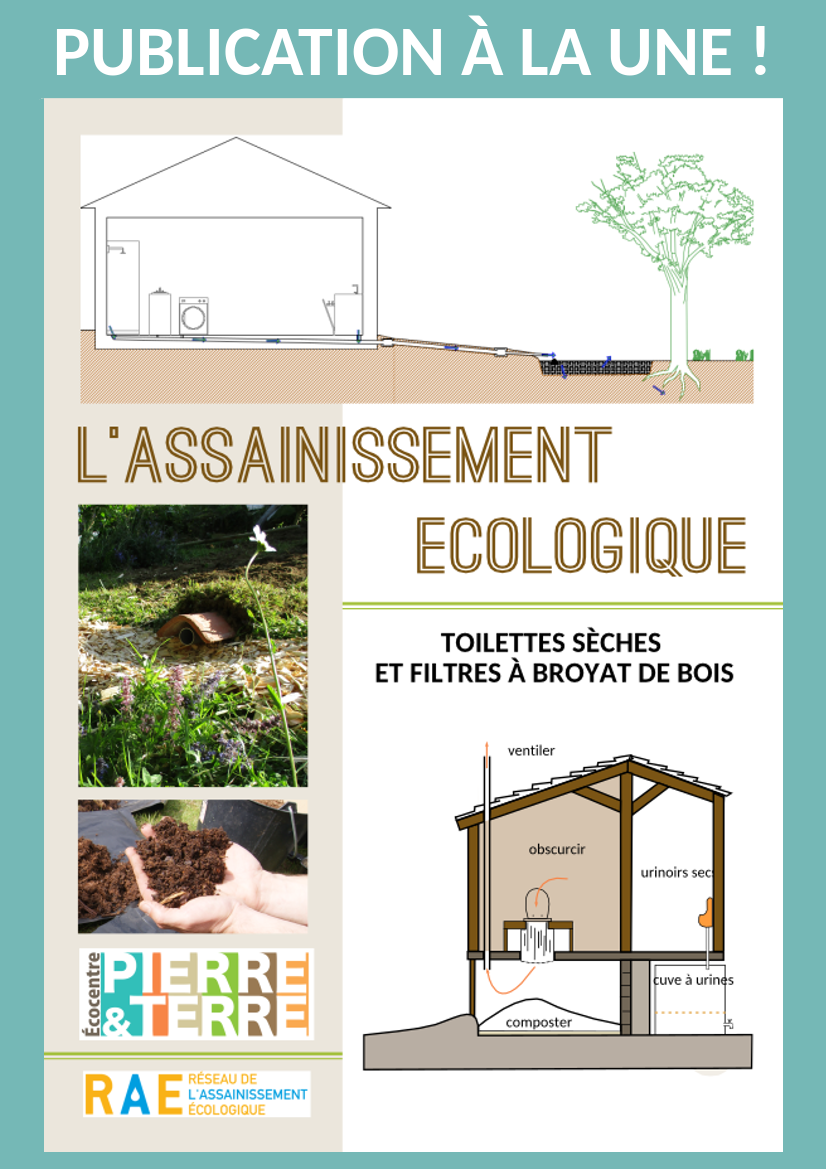 With more than 240 members and 160 institutional and technical partners, Pierre & Terre is an association based in the southwest of France, created in 1997 with the aim of promoting the development of ecological alternatives. Our missions are to inform, organize workshops and support individual eco-projects in 3 areas of concern : water and nature, (to preserve and learn about water resources, natural habitats and biodiversity…), ecoconstruction (to promote ecological techniques and materials which guarantee low ecological impact and good air quality in the house…) and ethical consumption and garden (to promote local and organic food, green products, to reduce and recycle our waste, to encourage organic gardening, to share experiences……).
With more than 240 members and 160 institutional and technical partners, Pierre & Terre is an association based in the southwest of France, created in 1997 with the aim of promoting the development of ecological alternatives. Our missions are to inform, organize workshops and support individual eco-projects in 3 areas of concern : water and nature, (to preserve and learn about water resources, natural habitats and biodiversity…), ecoconstruction (to promote ecological techniques and materials which guarantee low ecological impact and good air quality in the house…) and ethical consumption and garden (to promote local and organic food, green products, to reduce and recycle our waste, to encourage organic gardening, to share experiences……).
Association Pierre & Terre meets about 10000 people every year, through guided tours of the eco-center and by being involved in more than 50 micro-projects led by individuals, associations, schools, companies, town councils… all in favour of positive alternatives for our planet.
 The eco-center allows us to inform visitors using different exhibition spaces, a bookcase and a small ecological shop, as well as the building being an example itself of ecological construction.
The eco-center allows us to inform visitors using different exhibition spaces, a bookcase and a small ecological shop, as well as the building being an example itself of ecological construction.
The building and the materials used have a low ecological footprint and a low carbon footprint, and all these materials, which are local and natural, are characterised by a high level of recycling capacity. We can find in the building straw bales, hemp fibre, sheep’s wool, local timber (such as plane wood, cedar, oak, chestnut, pine and Douglas fir) cellulose wadding, natural pigment, lime, adobe, terracotta floor tiles… The choice of these « healthy » materials guarantee a good air quality inside the building and also better work conditions for the builders.

Energy efficiency is achieved through compactness and a good solar orientation, that takes into account local climate, allowing the building to be a passive house. The insulation potential is based on the structure made with 60 cm thick straw bales, sheep-wool and cellulose wadding for roof insulation, double and triple glazed windows, wooden rolling shutters, a roof overhang that protects against excessive sunlight, a green roof to maintain freshness. There is no air conditioning, but a double-flow CMV enabling the air renewal. Furthermore, the eco-center produces more than it consumes in terms of energy thanks to a range of equipment such as solar thermal panels, photovoltaic solar energy panels, a wind turbine and a wood stove with automatic pellet feeder (only needed a few days in the year). In addition to that, the building is self-sufficient in water, using rainwater harvesting tanks. The water used in the ecocentre is totally recycled, aswell as using compost toilets…
Resource center about sustainable and alternative development:
Areas of concern :
- Water and environment: to promote, to protect and to learn about local water resources (Adour river), local ecosystems and biodiversity, to design a management plan for areas of interest…
- Eco-Friendly Homes: to extend eco-friendly housing, to promote appropriate skills and materials (with low ecological footprint)…
- Ethical consumption and gardens: to expand an alimantation base on quality and proximity, to support circular economy, short circuit, to improve the management of solid and liquid waste by extending recycling, to encourage organic vegetable gardens and orchards, to share experiences…
Axes of intervention:
- Informing: 738 visitors at the ecocenter, 1130 by phone, 610 visiting our stand during eco-forum, eco-fair… Tools: Internet site (news and downloads), library, exhibitions…
- Training: 150 sustainable development activities, 4468 children and teens (biodiversity, bioclimatic construction, aquifer quality, climate changes, food, film projections and debates)
- Advising: 112 households were welcomed in the eco-center, 98 for eco-friendly homes, 47 benefited from home-visiting and a specific study, including 11 vulnerable households supported by social welfare to fight energy vulnerability. 62 for waste water management, 42 HH benefited from home-visit for waste water management and 14 were supported for construction of waste water management system. 39 private companies and local skill professionals (digging machine owners, mason, carpenter…). 35 collective structures (municipalities, associations and institutions) for eco-friendly homes and waste water management (school construction, eco-friendly green houses), eco-friendly specification for events (manifestations, concerts and exhibitions).

- 3 key ideas:
- Exemplarity – Duplicability
- Performance – Efficiency
- Pedagogy – Exhibition
Our statement is based on: to understand, to take part, to be responsible, and an actor of our own development; to promote innovations while strengthening technological re-appropriation…















